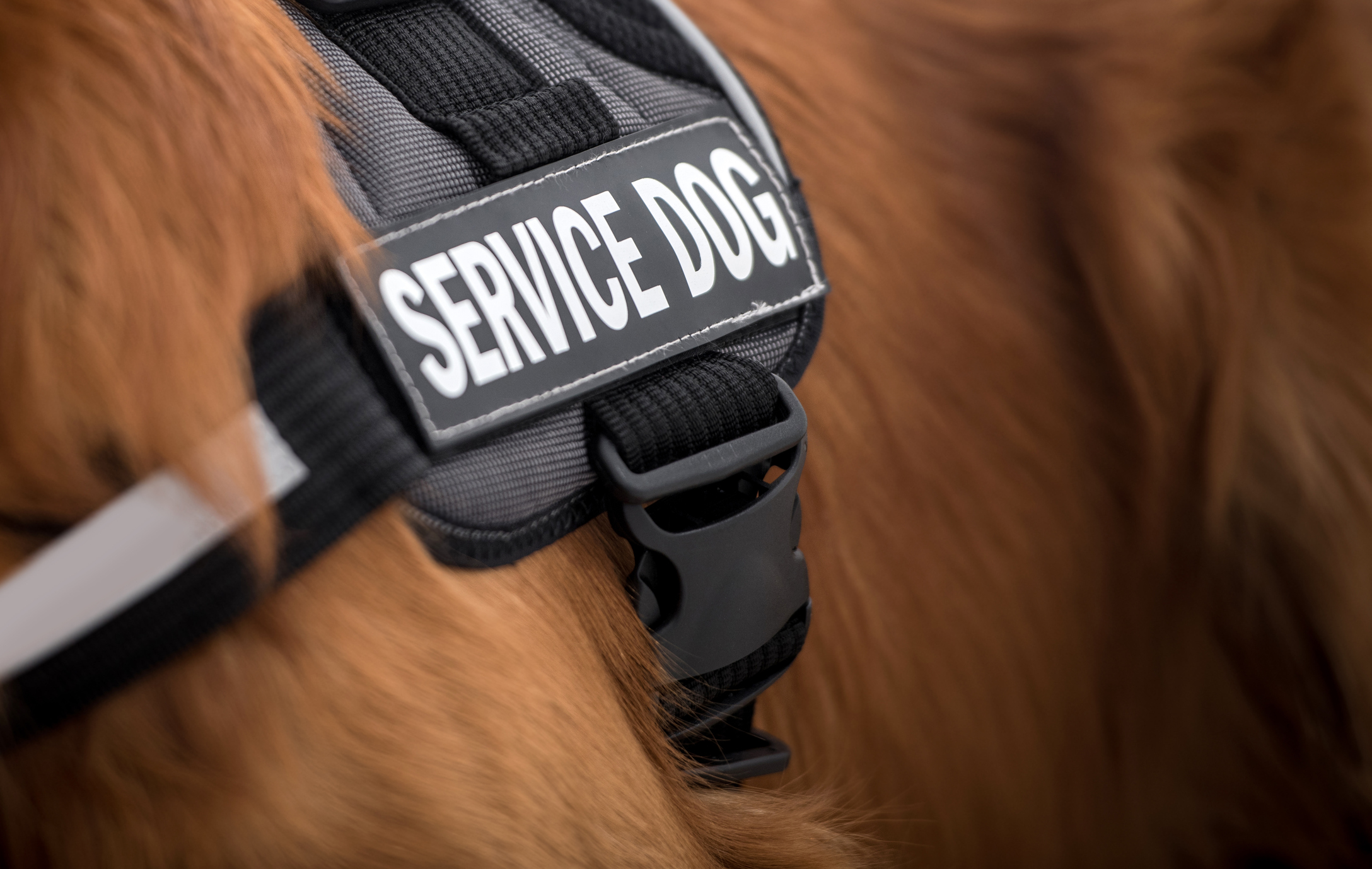If the military were to adopt an animal as its mascot, the dog would fill the role nicely. Endlessly dependable, teamwork-oriented (they are pack animals, after all) and fiercely loyal, dogs are the embodiment of what it means to be of service. It’s little wonder why firefighters, police units, airports and investigators around the world leverage a variety of dog breeds to accomplish their day-to-day objectives. Through it all, dogs perform their objectives with a wag, the canine equivalent to a human’s smile. Their gentle-heartedness makes National Dog Day all the more special.
But man’s best friend is not called upon solely for their extraordinary snout or their impressive speed — German shepherds can run up to 30 miles per hour — they’re also looked to for emotional support, psychiatric service or retrieving needs. They’re a source of comfort for those who may suffer from certain disorders or disabilities. Those issues are largely addressed thanks to service dogs and the people who train them.
If you’re in the military, are a veteran or know someone who might need a service dog but aren’t sure about how it all works, this article will give you some insight into not only the types of service dogs out there, but what breed is best for given tasks. We’ll also discuss the training aspects and how much you can expect to spend if you want to adopt a service dog or train the favorite animal you have now to become one.
What are the types of service dogs and what does each do?
Depending on who you ask there are between 5 and 10 types of service dogs. They include:
- Autism service dogs
- Hearing dogs
- Diabetic alert dogs
- Seizure alert and response dogs
- Allergy detection dogs
- Guide dogs
- Psychiatric service dogs
- Mobile assistance dogs
- Post traumatic stress disorder service dogs
- Fetal alcohol spectrum disorder dogs
It would take too long to go over all of these types of service dogs, but their description more or less identifies what they do. In the case of guide dogs, they’re primarily used to help people get from point A to point B due to blindness or other visual impairments. Guide dogs have a rich history with the military, dating back to World War I. They were used at the time to help service members and soldiers blinded by poison gas. Typically, German shepherds, labrador retrievers and golden retrievers make for the best guide dogs given their size, intelligence and temperament.
Another type of service dog that’s increasingly relied upon by a person on active duty or veteran is PTSD dogs. PTSD is one of the more commonly diagnosed health problems affecting men and women in the military. According to the Veteran’s Administration, PTSD affects 1 in 10 men and 1 in 12 women and is triggered when individuals encounter an intensely disturbing event in their lives, which they may come across in war, a natural disaster or serious accident.
PTSD service dogs are trained not only to identify when someone who has PTSD exhibits symptoms — panic attacks, labored breathing, sense of detachment, etc. — but how to help them calm down and feel more at ease. They may do so by nuzzling their snout into their owner’s hand, lick their face or apply gentle pressure to their chest.
You name it, a service dog helps bring simplicity to what’s difficult, be it in the form of emotional support, physical assistance or a variety of other personal needs.
How much does it cost to train a service dog?
What isn’t as easy is the training. The cost tends to vary from one trainer to the next, but according to Little Angels Service Dogs, pricing ranges between $17,000 to $40,000. While expensive, many people who have a service dog or assistance dog testify to its worth, particularly a person who relies on them for emotional support. All types of service dogs are truly priceless.
Nothing pleases a service animal more than being there for service members. At Omni Financial, we feel the same way. We provide military loans at competitive interest rates to active duty and career retired veterans. You’re free to use the funds however you choose. For more information on eligibility and to the application process, contact Omni today. Nothing pleases us more than saying yes.
This blog is for informational purposes only. Visit the individual websites for complete details including hours of operation and pricing information. Information can change at any time. Omni Financial does not endorse, recommend or imply affiliation with the listed companies, events or organizations.



